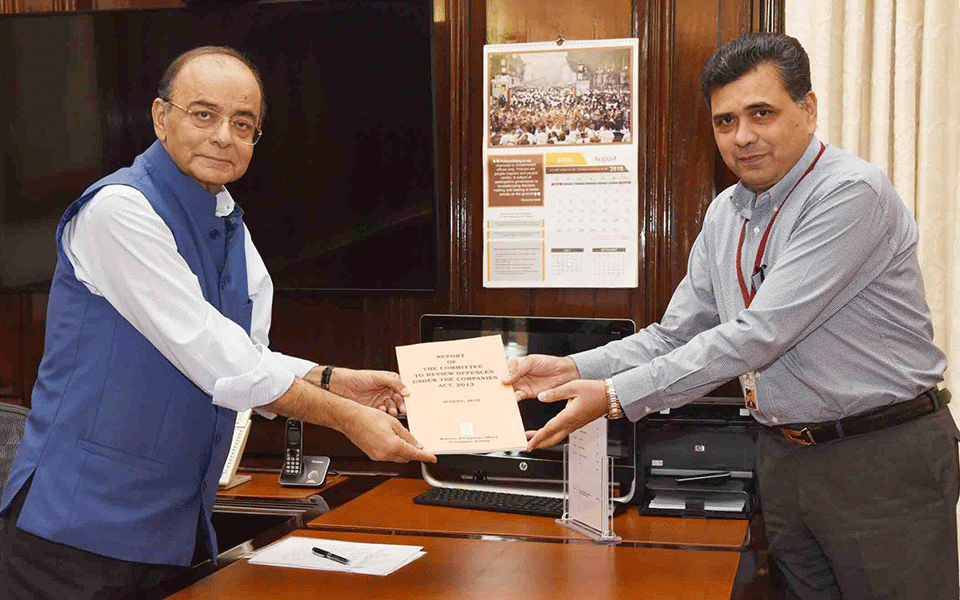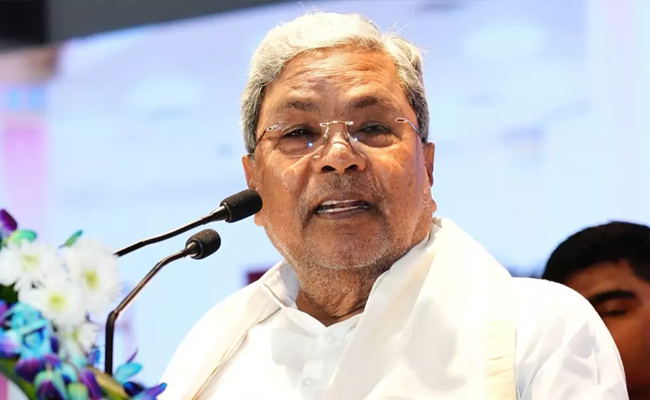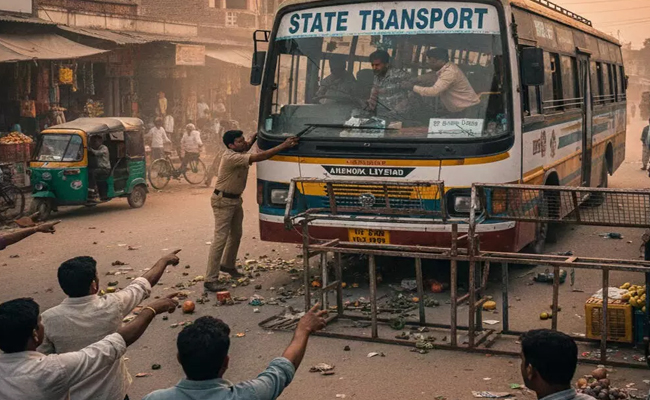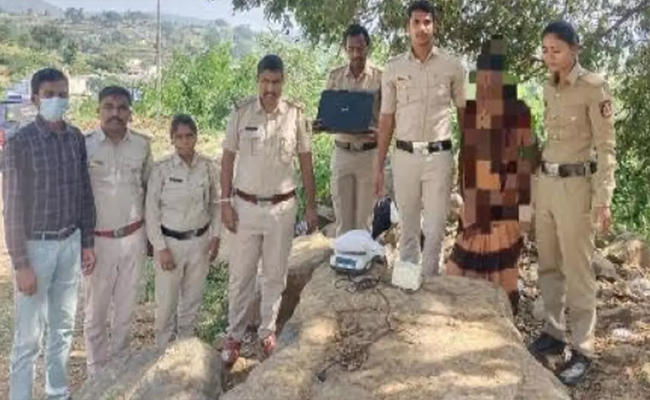Mumbai, Aug 27 : Finance Minister Arun Jaitley on Monday said the challenges to Indian economy were mainly from external factors such as rising oil prices and the US-China trade war, but India's macroeconomic fundamentals were strong enough to overcome those challenges.
Predicting higher growth rate than the projected 7.5 per cent for this year, he expressed confidence that India would continue to grow at a "high trajectory growth rate" over the next several years and would overtake the United Kingdom next year to become the fifth largest economy in the world.
"Even this year, our growth rate is going to be somewhat higher than what conventionalists are projecting," he said while addressing the Annual General Meeting of Indian Banks' Association via teleconferencing.
Making his first public address after over a three-month gap due to his kidney transplant surgery, Jaitley said it seemed to be an optimistic picture that India was continuing its run as a fast growing economy in the world.
"Our macroeconomic fundamentals have been reasonably sound, and if at all any gets impacted, it's not going to be on account of any internal factors. The management of the economy has reasonably disciplined itself in decision-making as far as our internal factors are concerned," Jaitley said.
"Our challenges are mainly external -- the unpredictability and volatility of the oil prices, which is on account of either created shortages or some geopolitical issues. And I hope that these challenges will not go on indefinitely. They have to resolve themselves - that's how the world moves," he said.
"Coupled with this is the challenge of trade wars. Though we are not an active participant in this, but the impact and footprint of that can be seen in India, particularly when there is a tendency of some large economies to either devalue or undervalue their currency," the minister said.
However, Jaitley said it was incumbent on the government to ensure that India's domestic parameters were strong so that the economy had the resilience to face the challenge of those external factors.
"High growth rate, fiscal prudence, a lot of economic activity in the domestic market, and a series of reforms which have taken place over the last few years - they have certainly helped the economy"."
The minister, however, acknowledged the banking crisis as a key domestic challenge and said the government had learnt lessons from it and was now putting systems in place in order to strengthen the institution.
"One lesson that I have learnt is that when we desire to have a high growth rate, it must be accompanied by strong macroeconomic fundamentals. If we start sacrificing our macroeconomic fundamentals in order to temporarily push up the growth, then we are hurting ourselves elsewhere and that is bound to strike back the economy at some point of time," Jaitley said.
Referring to the indiscriminate lending during the previous UPA regime, he said this was exactly what happened around a decade ago."
"Indiscriminate lending to chase growth at the cost of macroeconomic fundamentals was a policy mistake... And the result of this has been that we ended up creating surplus capacities... We ended up funding projects which were unable to service the kind of debt that they had created -- and needless to say some had indulged in fraudulent practices," Jaitley said.
And once that error was committed, the next error was the evergreening of loans and eventually, the banks struggled to find methodologies to make recoveries, he said.
However, Jaitley seemed positive about the future of the Indian economy which has now become the sixth largest in the world overtaking France last month."
"Barring China which grows at 6.5 per cent, we are the only ones growing at 7.5 per cent plus. The other four in the top six are much bigger economies but growing at a relatively smaller rate. We may overtake one of them next year itself because the gap is very narrow. "
"And over the next few years we have to target those who are number four and three and overtake them. With kind of investments and economic activity taking place in India... I am reasonably optimistic that over the next several years we are going to continue to grow at a high trajectory growth rate," he said.
Let the Truth be known. If you read VB and like VB, please be a VB Supporter and Help us deliver the Truth to one and all.
New Delhi: Chief Minister Siddaramaiah on Sunday asserted that fascism would not be allowed to enter India “through the back door of vote rigging” and called upon citizens to collectively defend the country’s democratic foundations.
Speaking after participating in an anti–vote rigging protest organised in New Delhi, Siddaramaiah said the gathering was not merely a political demonstration but a stand to protect Indian democracy. “We have come to the heart of our republic not as Congress workers or voters, but as protectors of Indian democracy,” he said.
Emphasising the importance of the right to vote, Siddaramaiah said it was the most sacred right guaranteed by the Constitution and the very foundation of democracy.
“Through voting, a farmer shapes the future of his children, a worker safeguards his dignity, a youth realises dreams, and a nation expresses its collective will,” he said.
He accused the BJP-led Union government of attempting to undermine this right through what he termed systematic vote rigging, including the alleged misuse of the special revision of electoral rolls. “This power is being stolen repeatedly,” he alleged.
ALSO READ: Bantwal police arrest two men for illegal sale of narcotics, seize two vehicles, 810 gm ganja
Warning against authoritarian tendencies, Siddaramaiah said history had shown that dictatorship does not begin with violence but with the misuse of institutions and manipulation of democratic systems.
“Across the world, authoritarian regimes pretend to protect democracy while quietly subverting it. This is what the BJP is doing today,” he charged.
He alleged that the ruling party was controlling institutions, intimidating electoral machinery, distorting voter lists, suppressing voter turnout in opposition strongholds, and misusing money and power. “This is not mere maladministration. Vote rigging is an attack on the very idea of India,” he said.
Siddaramaiah further claimed that governments formed through “stolen votes” could not be considered democratic.
“Such regimes survive through fear, fraud and distortion of the people’s mandate,” he said, adding that vote rigging posed the biggest threat to the republic since Independence.
Praising Leader of the Opposition in the Lok Sabha Rahul Gandhi, Siddaramaiah said he had shown exceptional courage in exposing alleged irregularities in voter lists, booth-level manipulation and “systematic, organised vote rigging” across several states, including Karnataka, Haryana and Bihar.
Referring to Karnataka, Siddaramaiah cited Mahadevpura and Aland constituencies as examples highlighted by Gandhi. In Mahadevpura, he said, thousands of allegedly fake and fraudulent voter entries and discrepancies in electoral rolls pointed to a narrow BJP victory. In Aland, he said, attempts were made to remove the names of legitimate voters ahead of the 2023 Assembly elections.
ALSO READ: Chamrajnagar: Woman arrested for selling ganja atop Male Mahadeshwara Hills
He noted that a Special Investigation Team (SIT) had recently filed a chargesheet accusing seven persons, including a former BJP MLA and his son, of attempting to delete the names of around 6,000 voters in Aland.
“This is a significant legal step in the fight against vote rigging,” he said.
Siddaramaiah concluded by stating that the fight against vote rigging was rooted in constitutional morality, Ambedkarite thought and the core principle of democracy. “Sovereignty belongs to the people, not to any party, regime or those who seek to steal elections,” he said.





